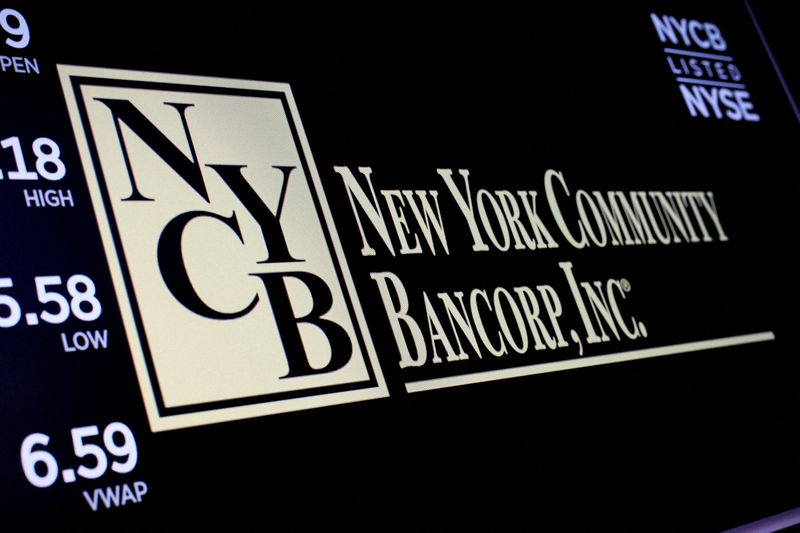By Jonathan Stempel
NEW YORK (Reuters) -New York Community Bancorp (NASDAQ:CTBI) was sued on Tuesday by shareholders after the embattled lender posted unexpected commercial real estate loan losses and slashed its dividend, causing its stock price to sink to a nearly 27-year low.
In a proposed class action filed in Brooklyn federal court, shareholders said the regional bank defrauded them by failing to disclose it would set aside more money for credit losses, and cut its dividend 71% to shore up its balance sheet.
Led by Tennessee resident Walter Lemm, shareholders accused the bank of having inflated its stock price since last March by offering an "unrealistically positive assessment of the Company and its financial well-being and prospects."
New York Community Bancorp (NYSE:NYCB) did not respond to requests for comment. Chief Executive Thomas Cangemi and Chief Financial Officer John Pinto are also defendants.
The Hicksville, New York-based lender operates about 420 branches under several brands, including the original name Queens County Savings Bank.
New York Community Bancorp shares closed down $1.22, or 22.2%, at $4.20 on Tuesday. They earlier fell below $4 to a level last seen in April 1997, according to Reuters data.
The stock price has fallen 60% in the last week.
They declined further after market hours as Moody's (NYSE:MCO) Investors Service downgraded many of the bank's credit ratings to "junk" status, and said the bank could face limited financial flexibility as well as "potential confidence sensitivity."
New York Community Bancorp last Wednesday posted a surprise $260 million fourth-quarter loss, reflecting loan deterioration tied to offices and apartment buildings, and said the dividend cut would preserve capital to meet regulatory requirements.
The bank's purchase last spring of the failed Signature Bank (OTC:SBNY) in a government-arranged auction, and the December 2022 purchase of Flagstar Bank, boosted overall assets to more than $116 billion.
New York Community Bancorp's problems have spurred concern about other midsized lenders exposed to commercial real estate.
Landlords have been struggling with low occupancy rates because of the pandemic, while elevated interest rates make it costlier to refinance loans.
Two other midsize regional banks, Silicon Valley Bank and First Republic, also failed early last year.

It is common for companies to be sued by shareholders after unexpected news that causes stock prices to fall.
The case is Lemm v New York Community Bancorp et al, U.S. District Court, Eastern District of New York, No. 24-00903.